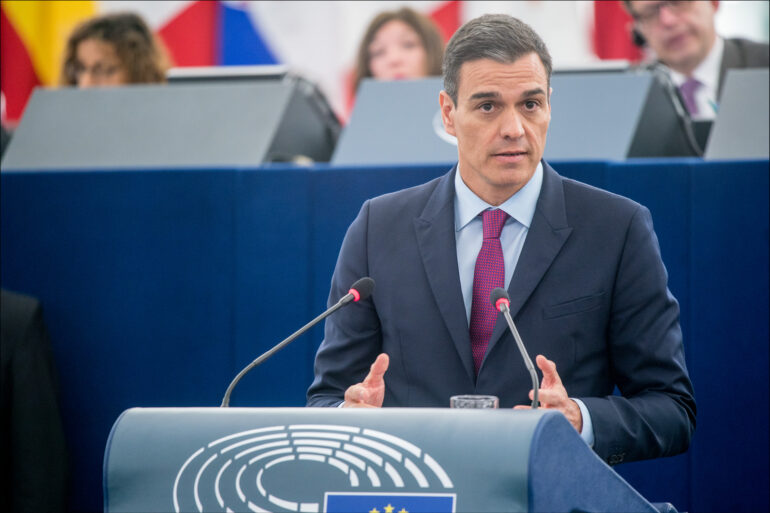Spanish Prime Minister Pedro Sanchez on Wednesday faced his first parliamentary test since re-election, with Catalan separatists refusing to back him in the first key vote of the legislature.
The lower house was to vote on three decrees adopted in December by Spain’s left-wing government that must receive parliament’s green light within a month.
The texts concern the renewal of anti-inflation measures, the functioning of the justice system and measures demanded by Brussels to unblock 10 billion euros of European funding.
The vote will be the first test of Sanchez’s fragile network of parliamentary support that handed him a new four-year mandate after finally putting together a working coalition in November.
He actually come second in July’s general election behind the right-wing opposition Popular Party (PP).
It looked set to be an uphill battle with hardline Catalan separatist JxCat party’s seven lawmakers, and five more from the hard-left Podemos saying they will vote against it in a ballot scheduled for the day’s end.
Without that support in a vote, the texts will not pass, given that the right-wing opposition has also pledged to vote against it.
“There can be no reason, no political outlook nor ideology that can justify not supporting our citizens, our families and our factories,” said cabinet minister Felix Bolanos, a member of Sanchez’s Socialist party, calling for support as the parliamentary debate opened.
Spanish media reports said Sanchez’s administration told its allies it would change the way of adopting such measures from a decree to a draft law proposal that would open them up to amendments but slow their implementation.
Junts per Catalunya (JxCat), which is headed by its self-exiled leader Carles Puigdemont, agreed to back Sanchez’s return to power in exchange for a controversial amnesty law linked to the failed 2017 Catalan independence bid that sparked Spain’s biggest political crisis in decades.
But until now, they have refused to support him in Wednesday’s vote on the grounds that one of the decrees could endanger the amnesty law that is currently passing through parliament.
They are also demanding the government sanction businesses who moved their headquarters out of Catalonia during the independence crisis.
Faced with the likelihood that the decrees will be blocked, the government reached out to the PP, but its leader Alberto Nunez Feijoo was unmoved.
“I will not take part in any rescue of Pedro Sanchez,” he said.
AFP


